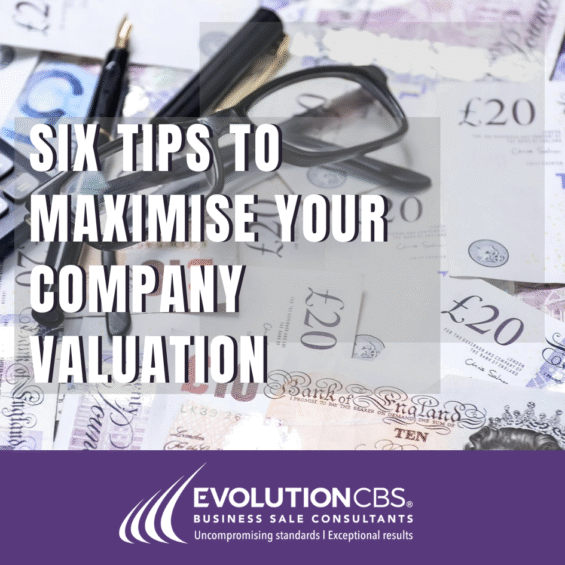Tips and Techniques to Maximise the Sale Price of Your Business

For most company owners a crucial question at point of sale is how much is my business worth? In reality, whatever your company’s valuation, an equally important question is how do I maximise the ultimate sale price?
Many business owners fail to recognise that selling an unprepared business weakens your market opportunity, devalues your asset and may ultimately cost you the outcome you are looking for. To this end, we have put together some tips and techniques to help you maximise the sale price of your business.
- Strategic preparation is key
The difference between a “good” valuation and a great one is determined by one key factor: strategic preparation. Few business owners fully appreciate how a well-prepared and well-positioned business can attract better buyers, stronger offers, and ultimately a higher sale price.
Preparing well includes time proven exercises, such as conducting a review of your financials, operations and key performance indicators (a SWOT analysis is highly beneficial). It could also include canvassing all other shareholders, for their views on timescales, valuation and who the ultimate acquirer might be – having in mind who potential buyers might be will enable you to consider what would be important to them in a business they buy and in turn this can help shape process and change in your business.
In addition to thorough preparation, retaining an experienced deal team with a strong track record of delivering multi-million pound transactions will significantly improve your chances of selling and enhance your overall business valuation. Some, in common with EvolutionCBS, offer focused preparation and targeted research in addition to the meticulous process management essential to achieving the right outcome.
- Accurate financial reporting is crucial
One of the most common issues that can drag down valuation is a lack of evident and consistent financial controls. Owners must ensure accounts are up to date, accurate, and appropriately structured, to pass the rigours of due diligence.
evident and consistent financial controls. Owners must ensure accounts are up to date, accurate, and appropriately structured, to pass the rigours of due diligence.
Companies that can evidence profitable results in recent years, cash generation and strong growth potential, regardless of challenging market conditions, will typically attract the highest valuations. Accordingly, accurate reporting underpins this.
This does require decent monthly management accounting and the ability to report on and analyse your trading results in a meaningful way, especially during the due diligence phase of the transaction when you will be subject to intense scrutiny from buy-side advisors.
- Recurring revenues enhance valuation
Recurring revenue models are highly attractive, with buyers drawn to predictable, recurring income. Whether you offer subscription models, service retainers, or maintenance contracts—document these clearly. Demonstrating reliable income streams provides buyers with confidence and reduces perceived risk.
The old adage “turnover is vanity, profit is sanity, cash is king” holds true for Mergers and Acquisitions transactions. Cash generative businesses will always attract significant interest, from both financial acquirers, such as Private Equity firms and trader buyers, such as multinational corporations.
Ultimately, a recurring revenue model dramatically reduces investor risk perception, especially if one-off contracts can be converted into dependable, recurring income streams.
- Reduce owner dependency
The more your business depends on you personally, the more risk a buyer perceives. Building a strong management team, clear operational processes, and documented systems makes your business easier to transfer and more attractive to investors or trade buyers.
This could include a gradual transition of day-to-day responsibilities, shifting crucial aspects of customer relationships and operational involvement to a senior management team. This is particularly attractive to financial investors, such as Private Equity firms, as it minimises the risk of the owner exiting with key customer relationships in their back pocket.
The one caveat is where the deal is comprised of contingent elements, such as Earn Outs, tied to the revenue/profit performance of your company. In that instance, the flexibility to remain involved in the company over the medium-term post-completion, could result in a maximised valuation.
- Avoid over-reliance on a single customer
A business that relies on one or two key clients is vulnerable. If more than 20–30% of your revenue comes from a single customer, this significantly increases the perceived risk in the mind of the acquirer. Buyers want to see stability of earnings across a broad customer base.
This means that preparing for sale must involve an analysis of customer concentration, as well as house-keeping contracts to ensure key relationships are secure. This not only includes the trading terms and conditions, but also any clauses that might impact a ‘change of ownership’, following a sale.
If your business has a revenue profile that is heavily dependent on one or two customers, then a strategic plan to actively secure new business may be required. This could require diversifying your products and services, or entering new markets.
- Know your company’s intrinsic value
This might not be what you think, but will be crucial to your target research list. Certain know how (Intellectual Property), clients, licenses and assets can all drive value beyond the standard metrics for your industry sector.
When it comes to understanding your company’s intrinsic value, the adage knowledge is power definitely applies. Firstly, recognise that different industries command different valuation benchmarks and even companies within the same sector will attract vastly different valuations.
Crucially, understanding how the valuation range in your sector applies to your business will help you position your business and allow you to negotiate with acquirers on the strongest possible footing. Accordingly, to achieve a maximised valuation in today’s market, you must start with a professionally prepared business valuation.
EvolutionCBS’ ‘Business Valuation Service’ directly addresses the key question: “how much is your business worth?” producing a comprehensive, bespoke report providing detailed insights into the financial health, assets, liabilities, growth prospects and overall value of your company.
Our Research Analysts will conduct an in-depth analysis of current and historic mergers and acquisitions deals relevant to your sector, to arrive at a valuation range that will enable you to fully understand how much your business could be worth in the current market.
If you would like a no-obligation consultation on the sale of your business or would like to discuss our Business Valuation Service, click here.
************************
As a long-established premium provider of business sale advisory services to UK businesses, EvolutionCBS offers business owners a complimentary and confidential discussion on how their specific objectives could be met and provides them with pragmatic, practical advice on how to begin preparing both themselves and their businesses for future sale or investment.
EvolutionCBS works with owners of UK businesses in any sector, finding buyers from around the world through highly targeted research and supporting clients with dedicated Director-led teams, at every stage of their journey to a successful sale or investment.
If you are an owner or shareholder of a business and would like a no-obligation consultation on the sale of all or part of your business, please email: info@evolutioncbs.co.uk or contact us on Tel: 0118 959 8224.

